
Pros
- Easy to jump into for Newcomers
- Fantastic writing
- Every choice matters
- Great artstyle
- Sandbox mode available at launch
Cons
- Easy to get a game over if you're not careful
- Lots of micromanagement
- Would like more District types
1887 - A lone man takes on the burden of developing one of the last cities on Earth following a post-apocalyptic ice age. The failing British Empire is on its last legs as the eventual Captain would raise and build a city to survive this harsh winter and name it New London.
30 years have passed since then and New London has endured the end of the world, but the passing of the Captain has created divisions across the city and its people, all with differing opinions on how the future of this great city looks, and it comes down to one person to see it through, you, the Steward.
Grab those blankets, huddle around the heater, and listen closely as we take you on a journey at the end of the world.
The world of Frostpunk 2 is a harsh one where survival is never guaranteed.
The Legacy of New London
Before we kick things off, I must confess that I am a relative newcomer to the city-survival genre - my past experiences harkening back to a brief stint with City Skylines a long time ago. The premise of Frostpunk always intrigued me though, with its unique setting and having had the time to briefly play some of the original before diving into Frostpunk 2, I’m left wondering what I was waiting for all these years.
The story follows the events of Frostpunk 30 years after the first protagonist, the Captain, has passed and New London is in a bit of a bind. While the city has been built, divisions have created tension and in its current state, it won’t survive the following Whiteout. As the Steward, you’ll need to come in, listen to all the pleas of the Communities and Factions within, and steer New London in a new direction before everyone freezes from the impending Whiteout.
This is just the beginning of the various scenarios that will happen throughout your leadership as the Steward and it’s not long before you’re managing multiple colonies and listening to differing radical opinions from the various factions, all while you have one eye on the next Whiteout that might undo all of your hard work. The Campaign unfolds across a Prologue and five exhilarating Chapters.
If you’re new to Frostpunk like I was, you can expect a city-building epic with a survival twist to it, that allows you to advance technology in the way that you wish. What truly sets it apart from its competitors though is the writing, the personal stories of the citizens and communities within New London, of the Frostland itself, and Frostpunk 2 takes this to a whole new level.
(1 of 2) There are some fantastic personal stories based on the choices you make.
There are some fantastic personal stories based on the choices you make. (left), The story will require you to make huge choices that impact how the campaign plays out. (right)
Survival on a Larger Scale
While the original Frostpunk was smaller in scope, taking place over 45 days or so for the main scenario, Frostpunk 2 dials this up massively. You’ll now be developing New London over the course of hundreds of weeks (my latest save has me at week 650 and counting) and, instead of buildings, you’ll be building Districts. The Frostland exploration is massively expanded: you’ll be discovering settlements and colonies where you can use Skylines or Trails to create a network throughout the expanse.
All of this takes place over continuous Chapters in the main storyline: you’ll be continuing each one where the last finished, with all of the benefits and problems you may have incurred along the way, as you search to make New London’s future a prosperous one. It’s this increased scale that gives longer-term players of the original a new exciting twist and will make them rethink everything they knew.
Frostpunk 2 gives you many choices throughout the campaign, some minor, some with massive ramifications that not only shape the direction of New London but of the various communities and factions that may appear down the line (more on that later). It’s these human decisions that you have to make throughout your management of the city that grabbed and sucked me into a genre I knew very little about.
(1 of 2) You can toggle the effectiveness of each District at the cost of output and workforce.
You can toggle the effectiveness of each District at the cost of output and workforce. (left), Everything you do will have an impact on the overall Tension of the city. (right)
To add to this, you can select any district and choose to zoom in on it to see how it’s run in more detail. You’ll constantly get pop-ups of mini stories from your citizens, be it of praise of how you’re running the city, a new law you just passed, or disgruntled members of a rival Faction furious about the direction of New London - there’s so much personality in everything you do.
The main antagonist of this grand adventure, however, is the cold itself: your old arch-nemesis from the first Frostpunk is back, and handling it has never been more important. With the expanded scope of Frostpunk 2, so too does the demand for resources to help you survive the harsh realities of this post-apocalyptic setting.
As you may expect, one of your earliest tasks will be to get the Generator running again by finding a new source of heat. It won’t be long before you’ll get choices that affect how you want to have your city run: do you want to have all forms of fuel available to you, or do you want to focus on one that is more effective but may cause more Squalor? As always, the various Communities and Factions of New London will have their say in it, and one way or another, you’ll find that you can’t please everyone.
The process of increasing your heat sources is perhaps one of the toughest earlier in your tenure. You’ll need to first extract Coal and then make sure the output of the various districts is not more than how much you’re bringing in. Fortunately, I felt this was executed in a great way, and it’s clear what you need to do to get the fuel running, along with the various options available to you to increase demand. Once I got more familiar with the mechanics, it became more of an afterthought outside of the occasional Whiteout, which you can prepare for by Stockpiling enough ahead of time.
It’s these human decisions that you have to make throughout your management of the city that grabbed and sucked me into a genre I knew very little about.
Before you can even start setting up Extraction Districts (to extract the various fuels you’ll come across), however, you’ll first need to Frostbreak the tiles around any of the deposits as you won’t be able to build anything on any areas that haven’t had this used on them first. You can do this on eight tiles at a time, but beware that this will use up precious Heatstamps (the main currency) and workforce so you’ll need to balance it rather than just going off and Frostbreaking the entire land around you.
Heatstamps are perhaps the earliest obstacle you’ll encounter in Frostpunk 2, it’ll seem like you never have enough coming in and the fact that nearly every action requires them in some way, it can be debilitating very quickly. As with most actions though, there are many ways to which you can increase the income of Heatstamps, such as introducing new laws that increase the income. The game always gives you multiple avenues to explore whenever a problem arises and it’s a function of the game I felt executed perfectly.
With each new District built, you’ll have to deal with both the heat demand and workforce demand, and you can toggle how much of each you want in said District. For example, in the warmer months, you can toggle it lower to decrease the heat demand but just be sure you’re ready for the lower output as a result of it. When it comes to extreme temperatures or a Whiteout though, the demands of the city will go through the roof so you’ll want to make sure you’re ready for this.
This is where Stockpiling comes into play as Whiteouts will really test the limits of the city you’ve built, but using Stockpiles and creating a network from the Frostland, you can offset that increased demand. Stockpiles are a simple measure of building small Stockpile Hubs related to the resource and ideally placing it near a relevant District for the bonuses. Creating a network requires a bit more work, you’ll need to first discover resources or settlements, then set up a trail or skyline back to New London. Failure to do any of this will see the Cold stat increase, tensions rise, and deaths to many of the populace - it’s a delicate balance you’ll need to work out.
(1 of 2) There is a lot to discover outside of the city which can help improve your odds against the cold.
There is a lot to discover outside of the city which can help improve your odds against the cold. (left), The Idea Tree will grant you new Laws and Buildings for your city in Frostpunk 2. (right)
New Research from the Idea Tree
Buildings still exist in Frostpunk 2, but you’ll first have to use the new Idea Tree to research their development before you can build one. Once you have a new building, and the available resources (such as Heatstamps, Workforce, and Prefabs), you’ll then need to build it on a specific District. Most Districts that you construct will have a building slot, and specific buildings can only be built in specific Districts, increasing the overall demand for heat and workforce there.
Some Districts, however, such as the Housing District, don’t come with a building slot, so you’ll need to expand the district (usually over another 3 tiles) to add one. You can do this to other Districts too so that you have more building slots, and it’s this level of customization you’ll need to employ to see that your city is running efficiently. Is Crime rising in New London? Construct Watchtowers and place them in the Housing District to increase the number of guard squads on the street.
As mentioned above, the Idea Tree is where you’ll get access to these buildings, but more importantly, you’ll be able to research ideas that you can then put to a vote at the Council that change the entire direction of the city. This plays a massive role in the various Communities and Factions you find in the world of Frostpunk 2 and every building or idea will follow one of the two core principles you’ll need to focus on as the Steward: Progress or Adaptation.
Communities and Factions
One of the largest new features of Frostpunk 2 is the addition of Communities and Factions, along with the Council that comes along with it all. In New London, based on a choice during the Prologue, you’ll have to deal with two main Communities, the Frostlanders and New Londoners, both of which have two very different views of the new world. As such, there are two main ideals for the city’s zeitgeist, Progress and Adaptation, and nearly everything you do, be it laws or construction, will increase them in one way or the other.
This could be anything from making it harder to get a majority vote in the next Council session to outright revolt and civil war.
As time goes on in your city, these Communities will splinter off into Factions, which are more radical versions of the ideals of the Community they came from. Each of these Factions will have lesser ideals they want to see enacted by the new Steward and should you not please them, you’ll have to deal with the consequences that follow. This could be anything from making it harder to get a majority vote in the next Council session to outright revolt and civil war.
As you spend time, you’ll have in mind how you feel New London should thrive, should it be Adaptation with the Cold, or should it be via technological Progress. You’ll find that trying to balance the two is difficult enough, and should you manage to fully embrace one or the other, you’ll unlock powerful abilities that can really change the way your city works, albeit at the expense at completely alienating the rival Factions.
(1 of 2) The various Communities and Factions will have a large say in the overall direction of New London.
The various Communities and Factions will have a large say in the overall direction of New London. (left), You’ll need to sway them over when you attempt to pass any Law at the Council. (right)
The Council itself will let you pass laws that have a large impact on not only those ideals but also your various resources and workforce. Pass a Law regarding regulating birth and you may see more workforce available to you, but the Pilgrims (a Faction that favors Adaptation) will not be pleased to see it enforced. Likewise, certain Communities or Factions will request certain Laws be put on the agenda of the next meeting.
The Council meets every 10 weeks to discuss a new proposal based on the various ideas you’ve researched, and they will impact the direction of the city towards Progress and Adaptation. To win a proposal, you’ll need a majority vote of 51 and you can influence it by negotiating with the various Communities and Factions to grant them what they want, such as letting them propose the Law at the next Council meeting or constructing a building that leans towards their ideology; as with most activities in Frostpunk 2, it’s a delicate balancing act.
New Player Experience
As I mentioned at the top of this review, as a newcomer to not only Frostpunk but also this genre, the sheer number of options was daunting at first glance. Fortunately, not only does Frostpunk 2 have a fantastic, easily readable user interface, but should you choose to, you’ll get useful tutorials when any new feature or option unlocks, that you can easily refer back to by hitting the option at the top right of the screen.
Holding the ALT button will allow you to take a look at your city at a glance and allow you to break it down into heat demand, workforce, squalor, and much more. This is incredibly useful as you get into the later stages of the campaign and have many Districts that you need to see at once, or perhaps during a Whiteout where you need to see where you can save on some of your growing heat demand.
When placing your Districts or buildings, you’ll also see a gauge that will fill up showing if you’re meeting a hidden area of effect requirement. This is usually something along the lines of decreasing the workforce of the nearby Districts or increasing the overall heat generated by them being close together. It’s all fairly intuitive and allows new players to easily jump in and get acquainted with the genre easily.
There are many tools available to you to make reading the game screen easier.
You’re also presented with several difficulty options that you can change at the start of a new campaign, or you can completely tailor it to your liking with a custom difficulty option. As a newcomer to the genre, I really couldn’t ask for more and it enhanced my overall experience with Frostpunk 2.
When all is said and done, I went into Frostpunk 2 with caution - it was a completely new experience for me and I was wondering how I would take to it all. Many, many, hours later and I’m hooked, thinking about all of the ways I might improve New London or the relations with the various Communities that have taken up refuge. I’ve not even touched upon the included Utopia Mode, which is an included Sandbox for you to create your own dream city without the rules of the campaign to abide by, but I’m looking forward to getting stuck into it.
Surviving the Frost
Frostpunk 2 is a great entry into the city-survival genre and one that will hook even newcomers to the genre. With a fantastic campaign full of difficult choices, a sandbox mode available from the start, and so many options on how you shape New London, the larger scale of Frostpunk 2 is one that succeeds in every way.
Gameplay:
Sound:
Graphics:
Story:
Value Rating:


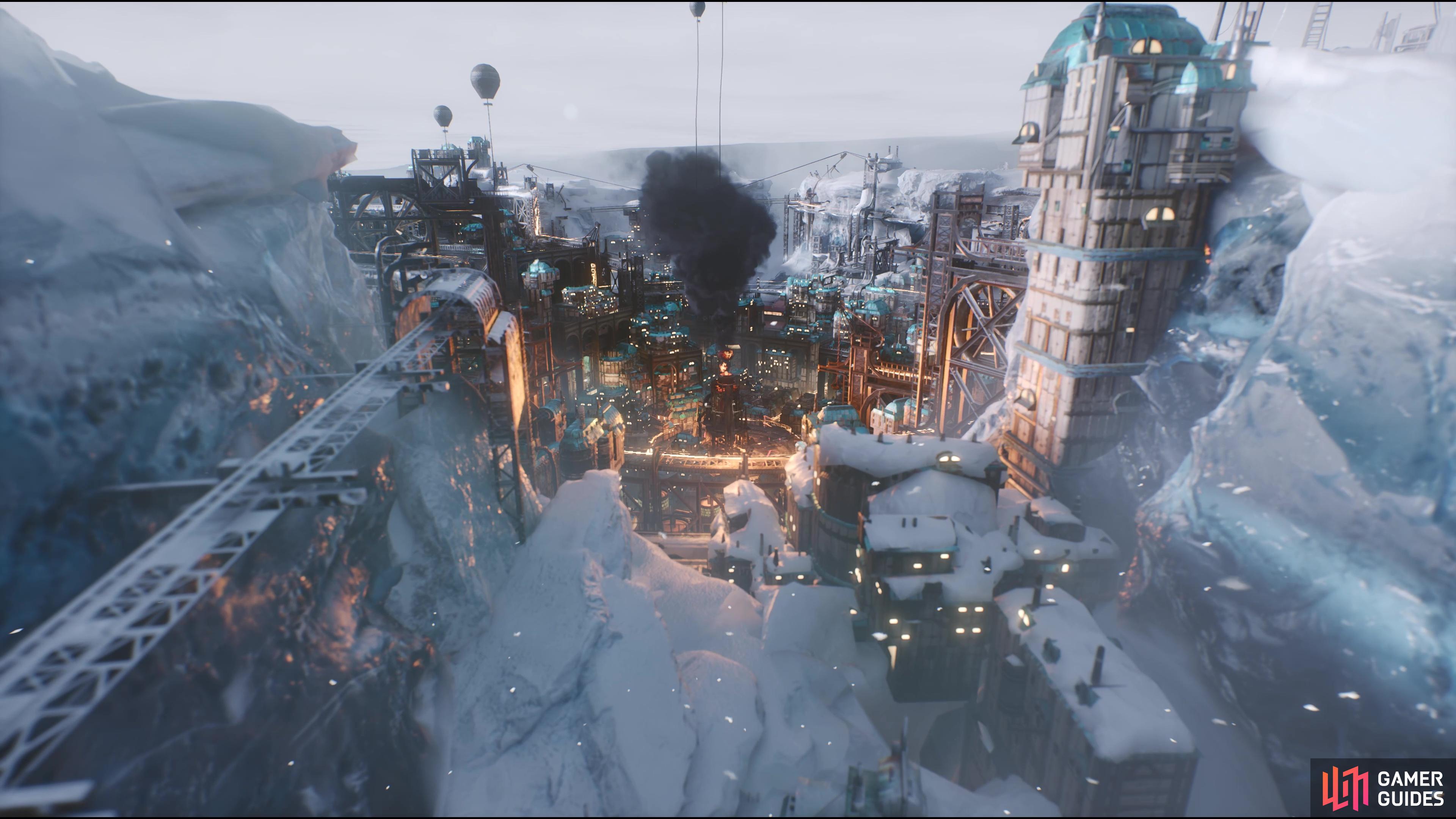
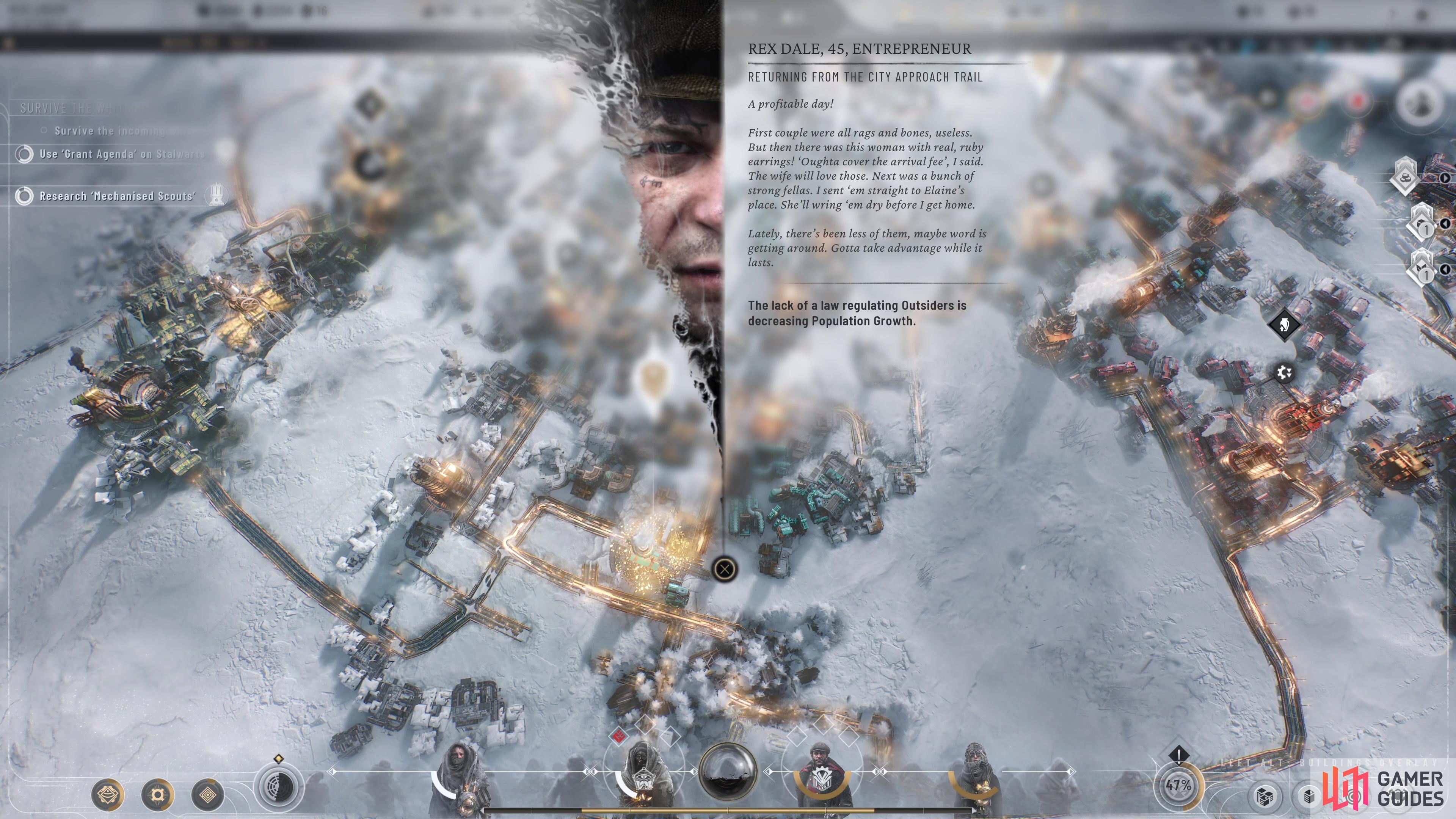
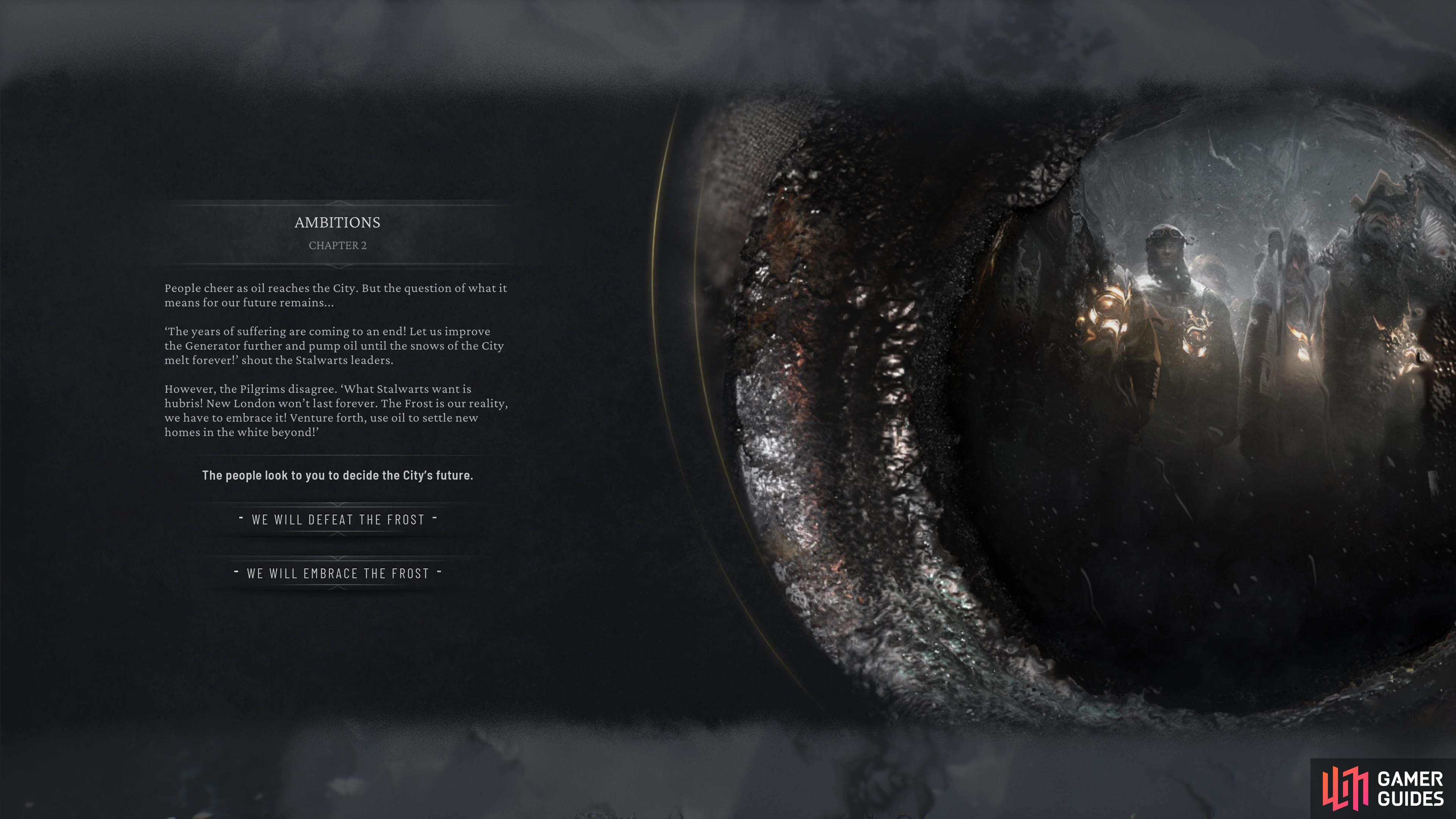
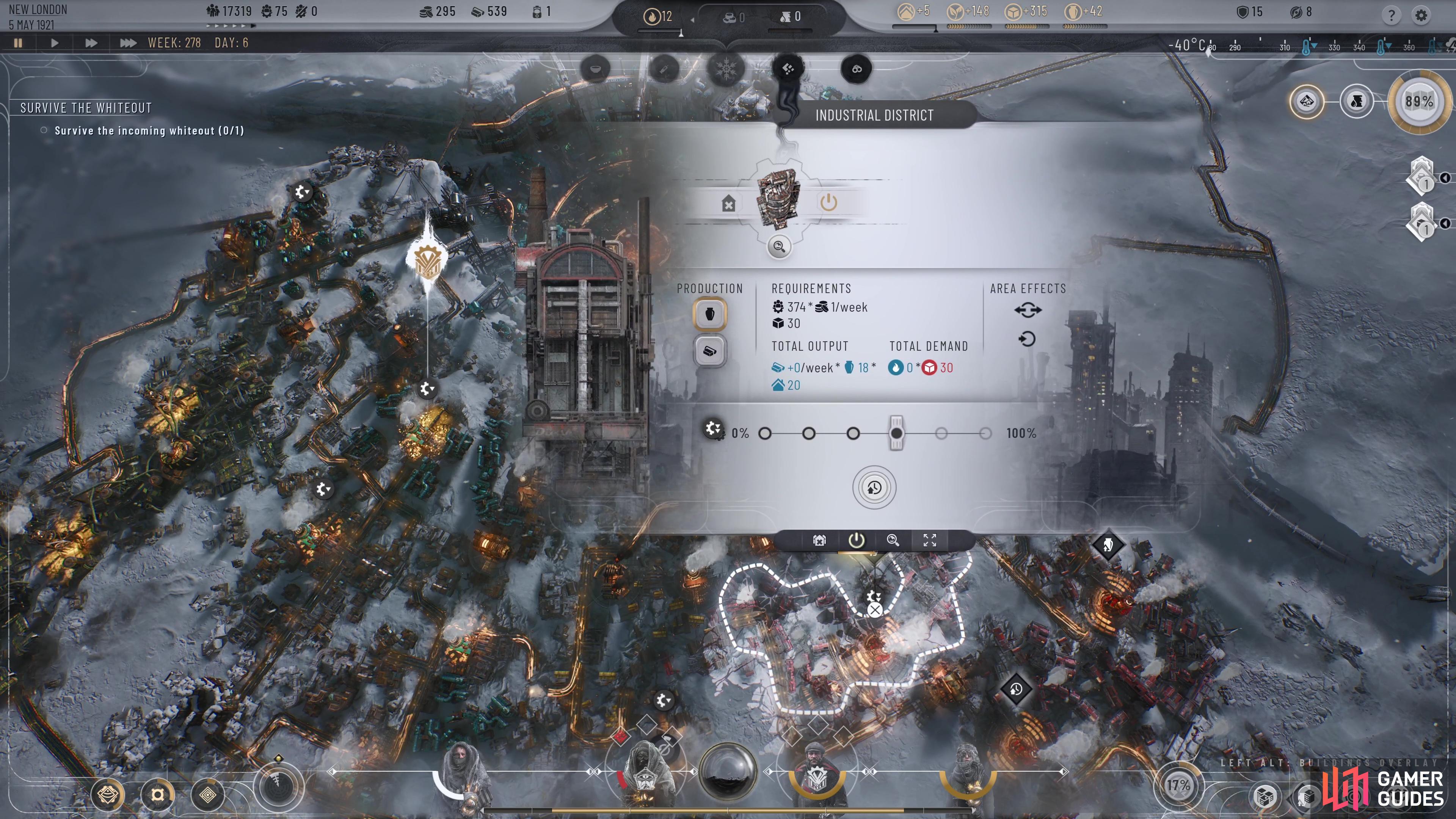
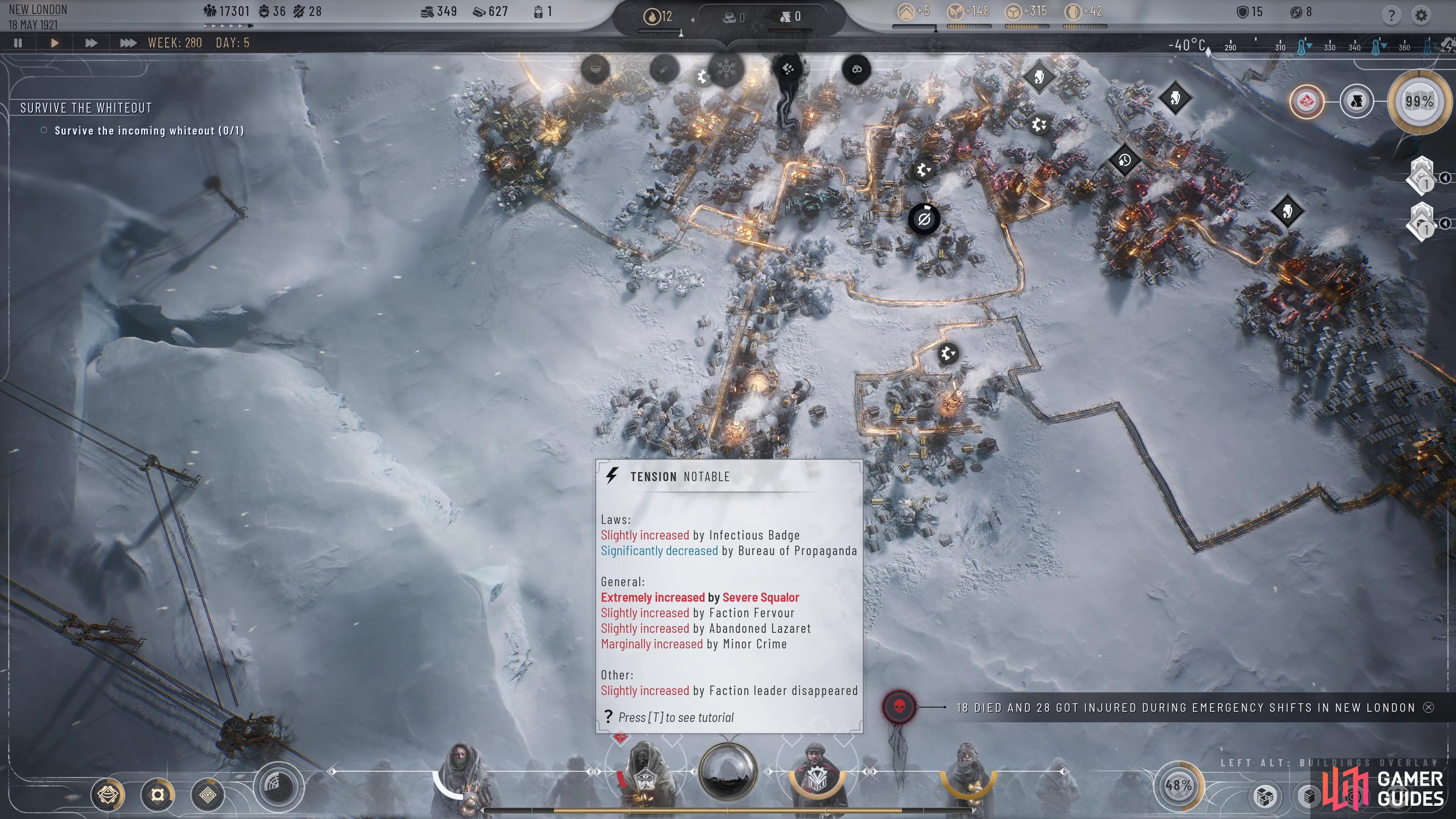
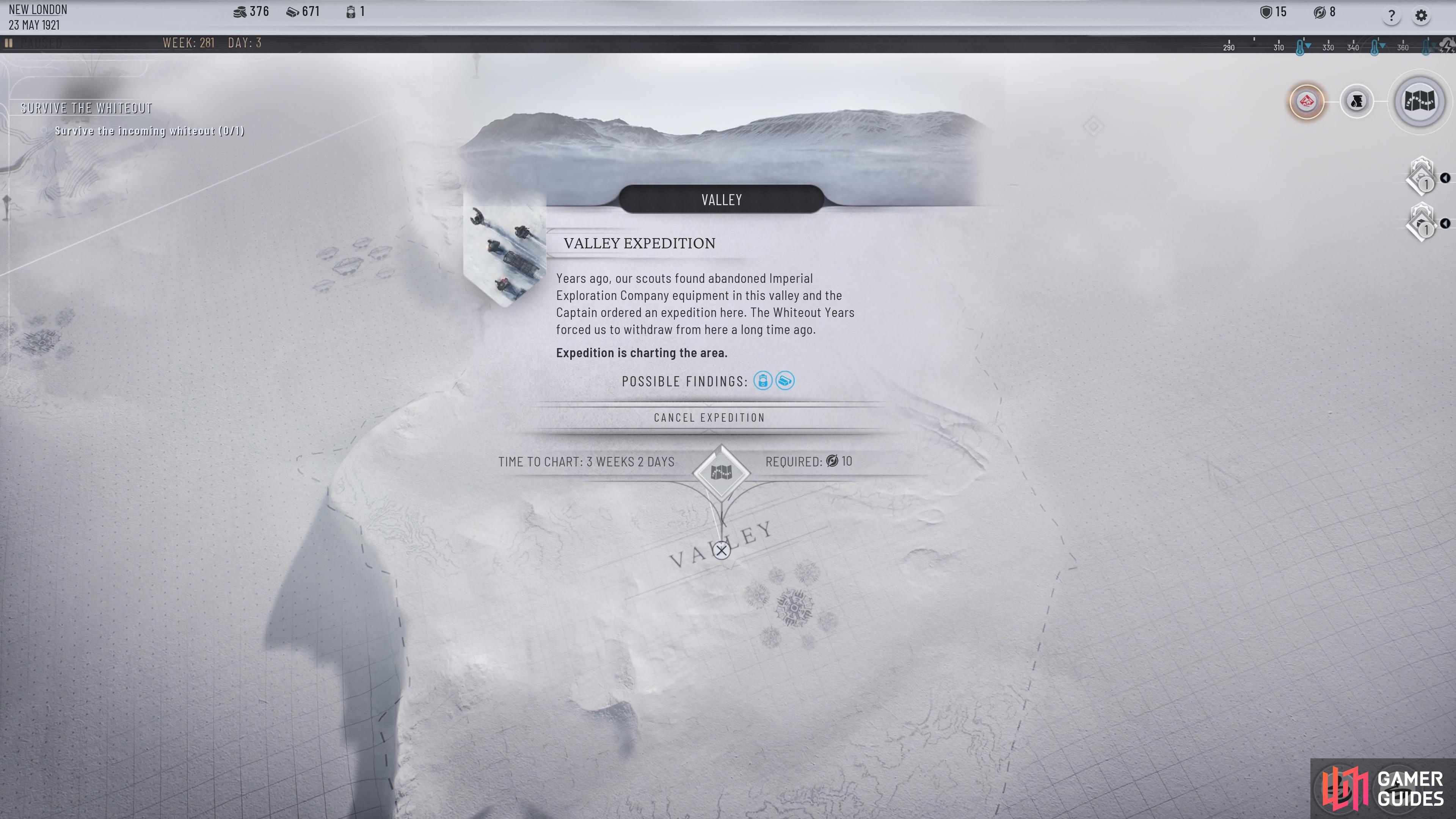
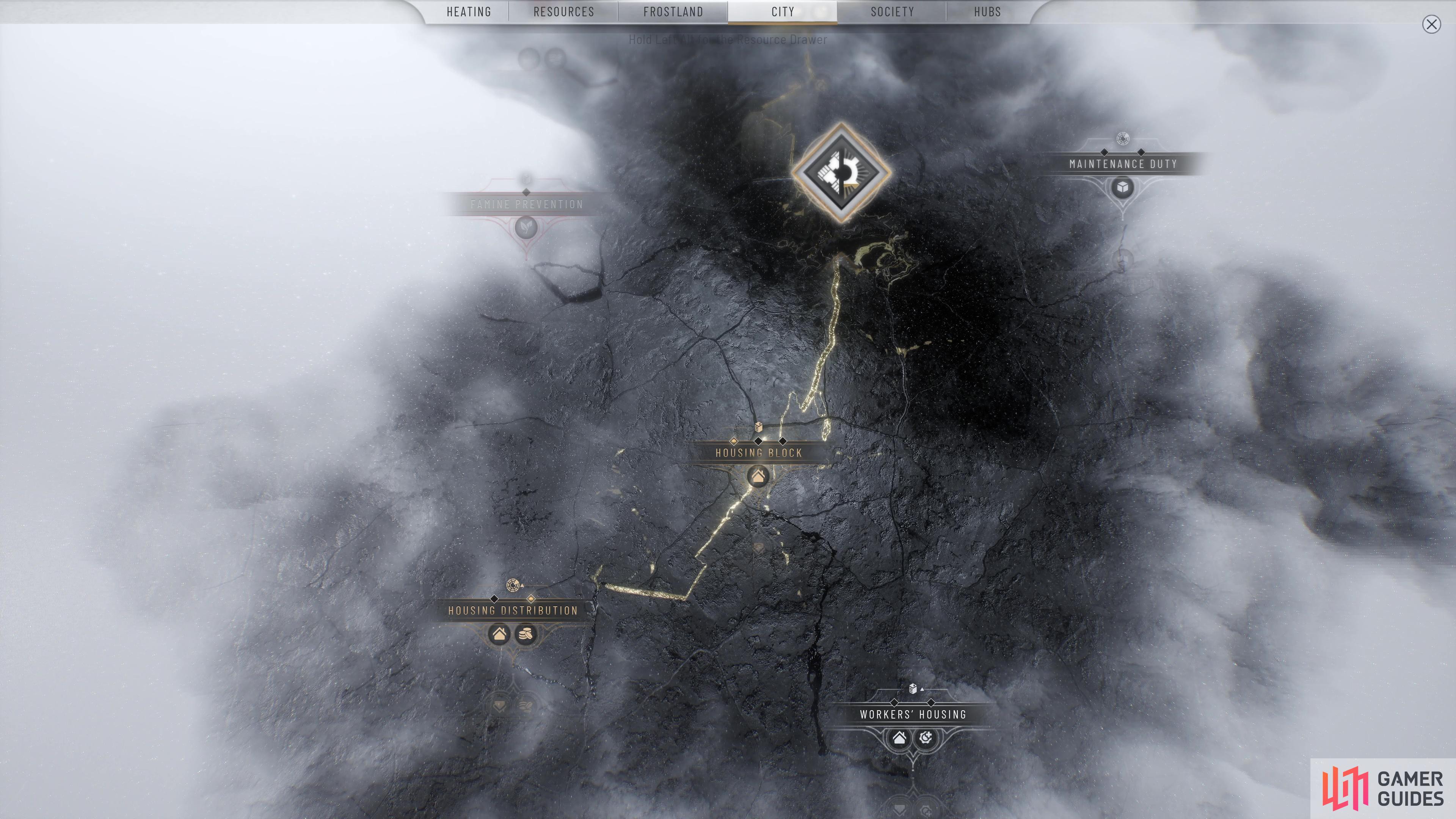
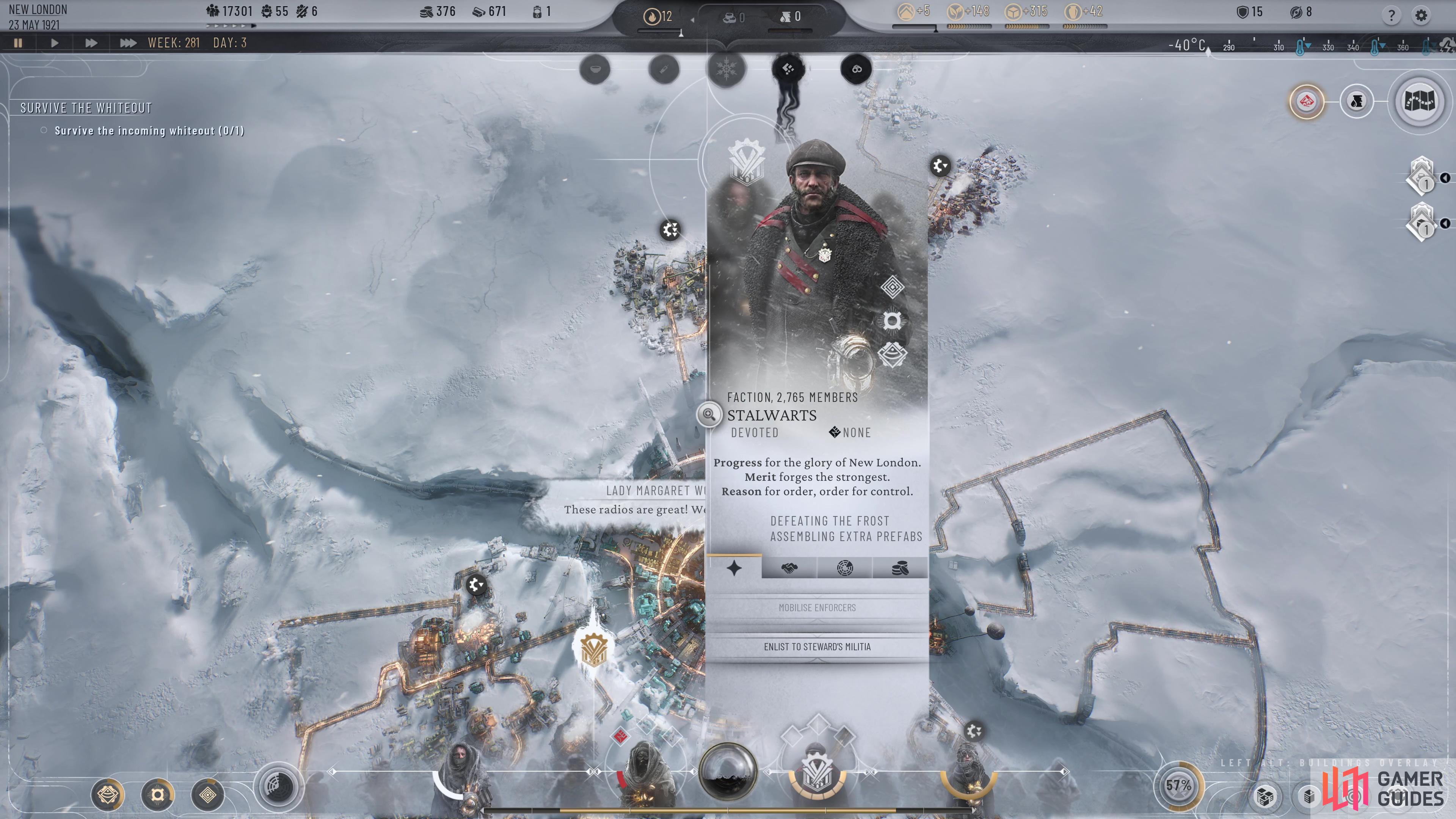
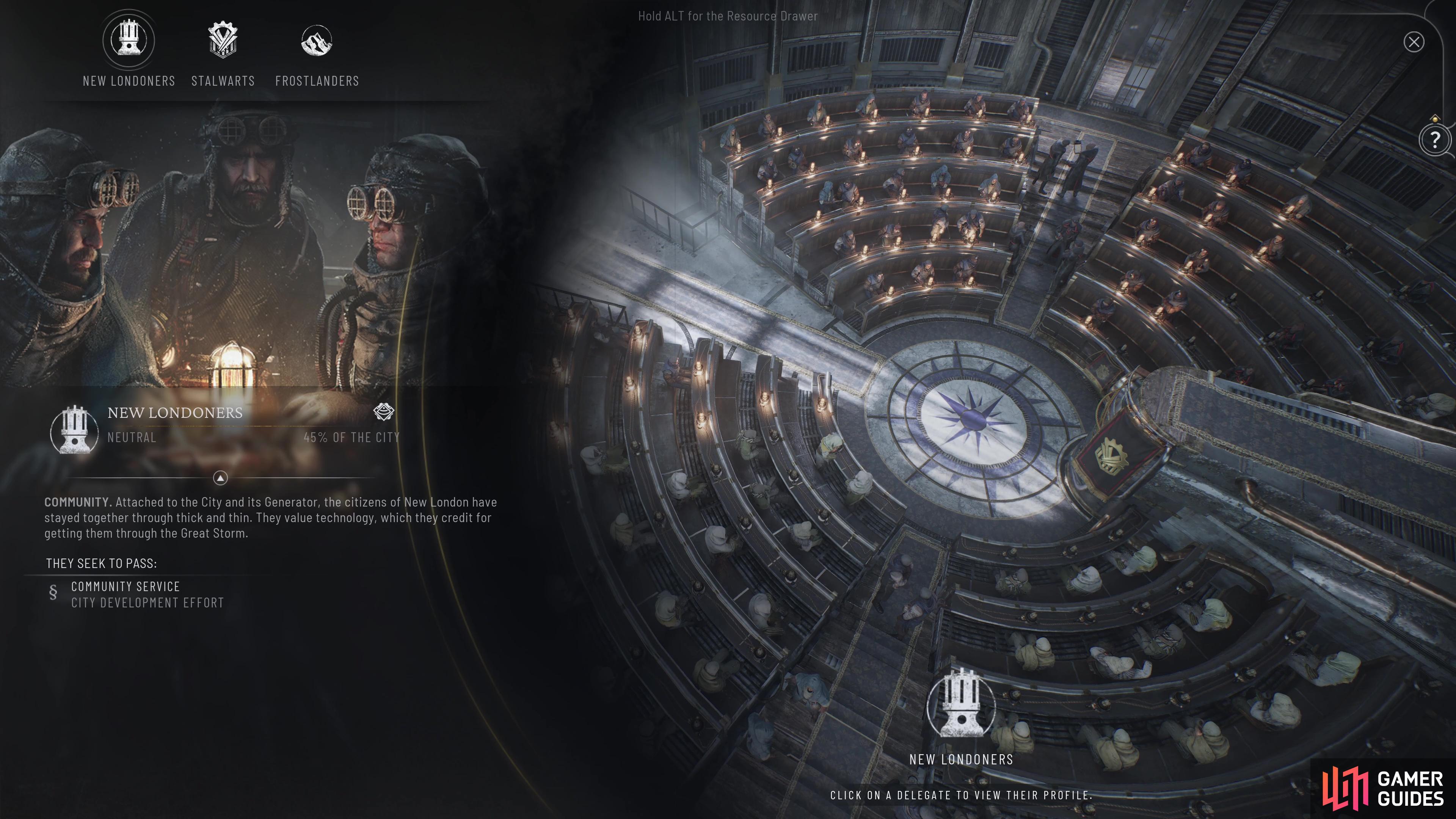
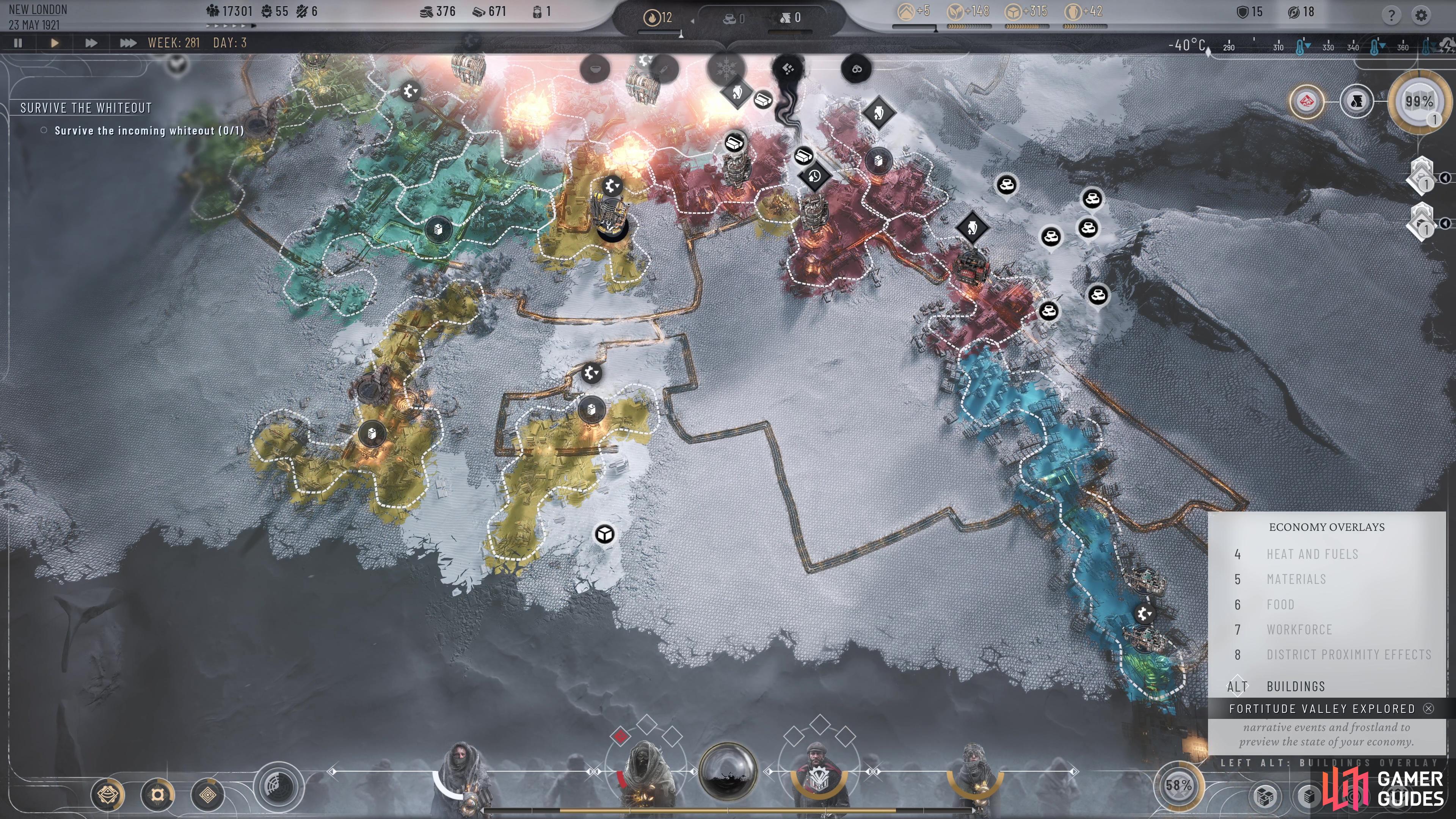

 Sign up
Sign up
I really enjoyed the original game as an interesting take on the city-builder formula, but it was rather poorly-optimized - even with the graphical settings at its lowest, it made my system chug more than it should have. I hope this sequel has improved things in that regard.
Great review! I am considering to purchase this for myself. It looks like a pretty unique approach to the genre!